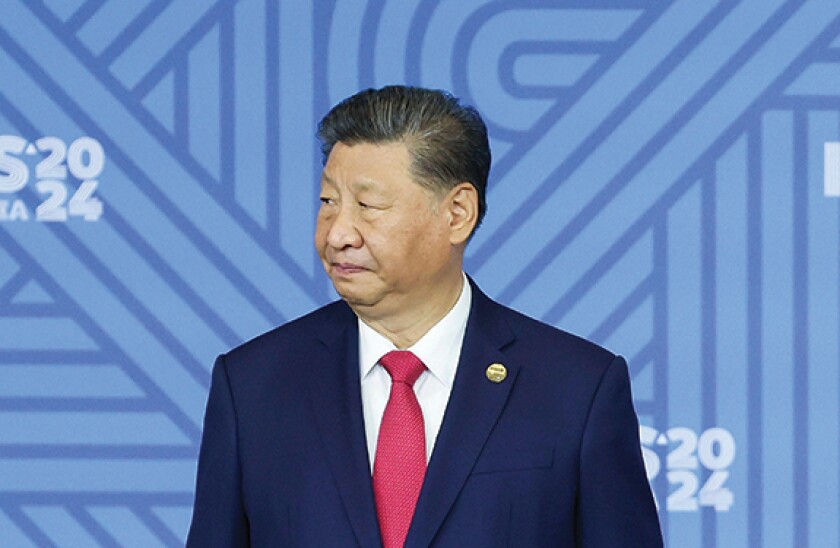China’s policymakers are not prepared to take the difficult steps necessary to fix fundamental issues facing the country’s ailing economy, according to senior economic analysts gathered in Washington.
Investors are going to be “disappointed” if they expect Chinese authorities to abandon their focus on investment-led growth and rely more on domestic consumption, Haibin Zhu, chief China economist at JP Morgan, told GlobalMarkets.
But many economists say this will be the only way for China to avoid a painful and highly disruptive economic transition. The Chinese Communist Party has overseen decades of stellar economic performance, but the model on which it is based is now fundamentally broken, they argue.
An all-consuming focus on supercharging investment and constraining domestic consumption have resulted in ballooning debt, rampant inequality and now an economic slowdown.

All eyes are on the housing sector, where chronic oversupply has sent prices tumbling and real estate developer debt is estimated at around Rmb60tr ($8.4tr) — almost 50% of 2022 GDP, according to SwissRe. “Domestic demand, consumption, housing — they continue to be the weak links,” Zhu said.
China-focused research firm Rhodium Group believes that without “significant fiscal reform” household consumption would contribute only 1.5 percentage points of GDP growth a year, limiting long term GDP growth to around 3%.
Logan Wright, a partner at Rhodium, said recently that China’s share of the global economy had probably peaked. The country’s share of global GDP was 16.9% in 2023 — down from a historic high of 18.3% in 2021. The stockmarket has fallen more than 30% over the same period.
Government data released on Tuesday showed the Chinese economy grew at an annual rate of 4.6% in the third quarter — below trend and a sign that economic momentum remained weak, according to Zhu.
The authorities have deployed a range of stimulus measures — including lower interest rates, mortgage rates and reserve requirements — although the exact size of the stimulus remains unclear.
Stimulus packages
Zhu said JP Morgan’s expectations for Chinese government stimulus this year were for a Rmb1tr ($140bn) package aimed mainly at mitigating risks around local government debt, and an additional Rmb1tr for bank recapitalisation. “In the next two or three years we are thinking probably every year Rmb2tr of ultra-long treasury bonds that can be used for general purposes.”
The concern is that none of these measures addresses the fundamental issue of weak household consumption and a dependence on investment, which remains a dead weight on the entire economy. “The underlying issue for me is that you still see disposable income dragging,” said Alicia García Herrero, chief economist for Asia Pacific at Natixis, at the Institute of International Finance conference in Washington.
Chinese finance minister Lan Fo’an has touched on boosting consumption in his statements outlining government stimulus plans. But Zhu said his comments betrayed the old reliance on investment as a driver.
“If you listen to the finance minister, he mentioned several directions on how to support consumption — number one was supporting income growth, which I totally agree with,” Zhu told GlobalMarkets. “But then he elaborated that in supporting income growth, [China] needs to support new investment projects and that can create new jobs. So it’s a very different [way of] thinking.”
